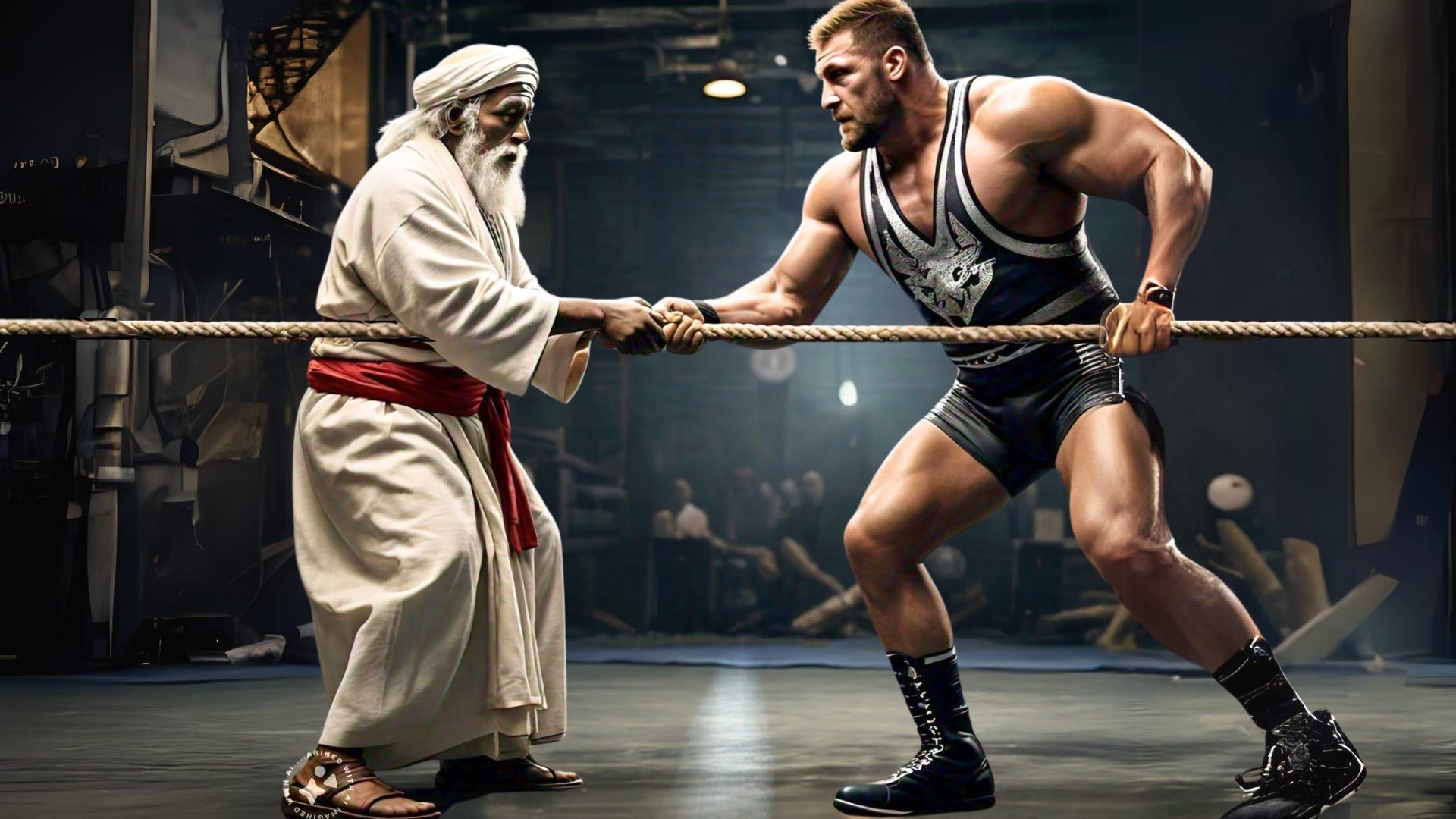Crisis of Identity
What exactly is Free Will?
In our quest through the big questions of life, we’ve arrived at a topic that can be seen as the crux of so many of these big questions we’ve explored already, and so many that we have yet to explore — the topic of free will.
In the last XL, we began to think through why free will is necessary. Letting people do whatever they want introduces a whole mess of possibilities that range from sub-optimal to totally terrible and disastrous, so why go through the trouble?
Phrased differently:
If, as we said, God created the universe in the first place in order to give us the gift of life, and nothing is really stopping Him from giving us the best possible life, why would He let us make our own choices, which might, more often than not, allow us to mess everything up?!
We gave two answers to this question:
The Psychological Answer - If the “good life” would just be handed to us a silver platter, any pleasure we would get out of it would be eclipsed by the deep sense of shame that we did ourselves nothing to deserve it.
The Metaphysical Answer - In so far as we are not actually making choices in our lives, and are compelled like robots to do whatever it is we’re doing, in a very real sense, it’s as if we don’t exist at all. We’d be no more than puppets, whose reality as independent beings is a mere illusion.
Although this can help us understand why free will is key to a meaningful life, what’s not yet clear is:
What exactly IS free will?
Are all of our decisions truly “free willed decisions”?
Could it be that some decisions we make simply FEEL like decisions, but really we are, in a sense, just doing what we’ve been pushed into doing by our environments and biologies?
For starters, the term “free will” is confusing. It’s simply not true that we are free to do whatever we will ourselves to do.
I personally have always wanted to fly. I really wanted to fly. But, alas, I can’t. Believe me, I’ve tried.
I’ve come to terms with this (am coming to terms with it…). A huge part of growing up is coming terms with our limitations and making our life choices within this framework of what’s possible.
But more than not being free to do whatever I will, I’m not even free to will whatever I want.
I have natural preferences. There are things I feel like eating, and things I don’t. There are jobs I would want, and jobs I definitely would not. I am not free to want a job that I don’t want.
Does this mean I don’t have free will? Of course not.
Like many important questions, once we clarify the language we’re using, it gets easier to think through it. The term in Jewish philosophy for “free will” is בחירה חפשית, which is more accurately translated as “free choice” than “free will.”
What is free is not our will per se, but our choice to choose between alternatives.
The question is: which alternatives?
The alternatives we are free to choose from are not outside of us, but rather alternatives within us.
Have you ever really wanted to do something that you didn’t feel like doing?
Or craved something that you wished you didn’t?
Isn’t this interesting?
What we want is often contradictory. Part of us may want something, and yet another, perhaps deeper part of us, does not.
Why is this?
God gave us free will because He wanted us to be able to be stakeholders in our own lives. He didn’t want us to just watch our lives go by as passive spectators — no matter how wonderful that movie might be. But because we can only have free will if there is a real choice to make, He made each of us through a combination of two completely different parts of our self: a sentient, conscious, selfless soul and a physical, unconscious, self-absorbed body.
The true choices we make are the ones in which these two parts of ourselves pull in opposite directions.
Paper or plastic. Cash or credit. Huggies or Pampers. Total or Wheaties...
These are not decisions that ask my Higher Self to battle it out with our Lower Self. It may very well be that we are not “free” in these decisions. Perhaps we are just subject to whichever products’ marketing team was most successful in getting into our heads.
But when I have to take care of another person, but it’s hard for me because being kind is pulling against being comfortable — this is real choice. My Higher Self wants to be kind, but my Lower Self wants to be comfortable.
These are defining choices.
Not only in terms of what I do, but more importantly, in terms of who I am.
Who we truly are in any given moment can be understood as the some total of all the true choices we’ve made up until that moment.
Grasping this idea will open up a whole new vista on life.
The journey continues next week…




